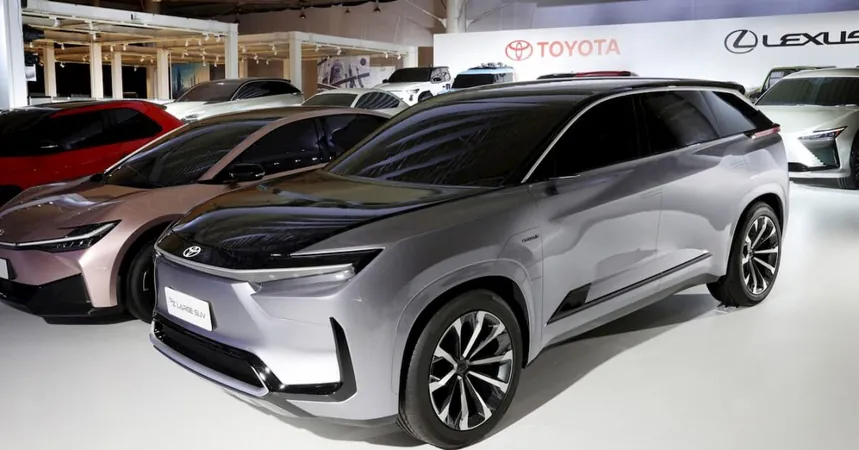
Toyota Delays US-Made Electric SUVs: Unpacking the Real Reasons Behind the Shift
2024-10-03
In a surprising turn of events, Toyota has announced a significant delay in the production of its new electric SUVs planned for the US market. Originally scheduled to begin next year, the production of these highly anticipated vehicles is now pushed back until at least the first half of 2026. But what is truly behind this decision?
Recent reports from Nikkei indicate that Toyota's all-electric three-row SUV, set to be manufactured at its largest global facility in Georgetown, Kentucky, is facing a production holdup. This facility has undergone over a billion-dollar investment to prepare for the electric SUV assembly.
Initially, the automaker had high hopes for this model, expecting to start assembly in 2025; however, supplier communications reveal that the company is now citing sluggish electric vehicle (EV) sales in the US as the primary reason for this delay. This announcement coincides with a broader trend as Toyota seems to redirect its focus toward hybrid sales, which have been showing more resilience in the current market.
Notably, Toyota is also scrapping plans for a North American assembly of Lexus electric SUVs, shifting instead to ship these vehicles from Japan. This marks a significant pivot in strategy, as Toyota looks to adapt to the evolving market landscape.
Interestingly, while Toyota seems to be pulling back, other automakers are thriving. For example, General Motors (GM) has reported a remarkable 60% jump in EV sales during the third quarter of this year, outperforming rivals like Ford. GM's total EV sales through September hit 70,450, thanks to popular new models such as the Chevy Blazer and Silverado EV.
Similarly, Hyundai and Kia have witnessed heightened demand for their EV offerings. Hyundai is gearing up to start US production of its IONIQ 5 amidst plans to open a massive new EV plant in Georgia. Meanwhile, Kia's EV9 has already made waves in the market, surpassing Toyota's bZ4X sales with nearly 16,000 units sold in the US through September.
So, what does this mean for the future of EV sales in the US? Is Toyota's regression a reflection of slowing demand, or is it simply a matter of insufficient variety in the electric vehicle market? With competition heating up, many stakeholders are eager to see how these adjustments will impact Toyota's strategy moving forward. Stay tuned!









 Brasil (PT)
Brasil (PT)
 Canada (EN)
Canada (EN)
 Chile (ES)
Chile (ES)
 España (ES)
España (ES)
 France (FR)
France (FR)
 Hong Kong (EN)
Hong Kong (EN)
 Italia (IT)
Italia (IT)
 日本 (JA)
日本 (JA)
 Magyarország (HU)
Magyarország (HU)
 Norge (NO)
Norge (NO)
 Polska (PL)
Polska (PL)
 Schweiz (DE)
Schweiz (DE)
 Singapore (EN)
Singapore (EN)
 Sverige (SV)
Sverige (SV)
 Suomi (FI)
Suomi (FI)
 Türkiye (TR)
Türkiye (TR)